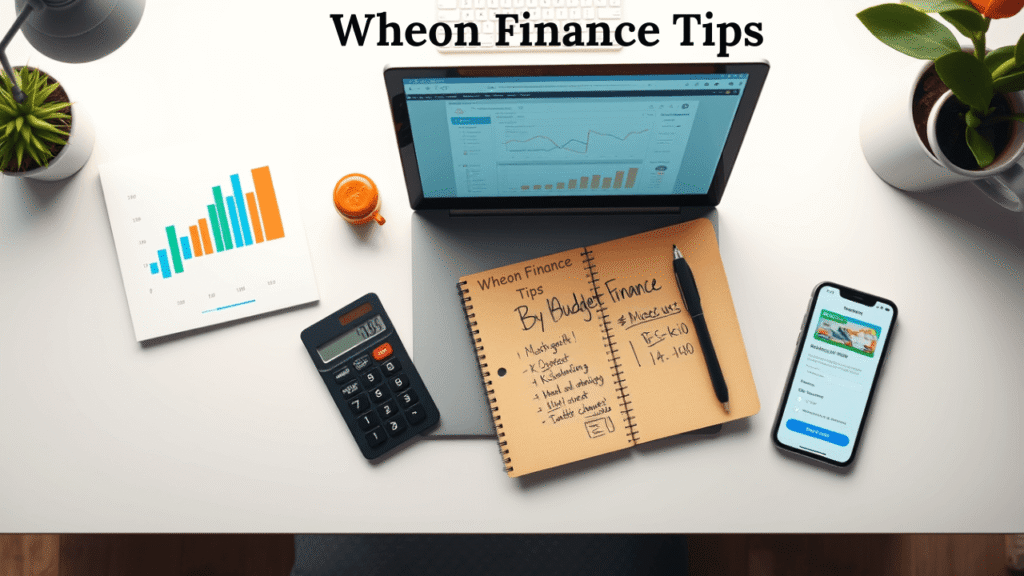Let’s face it—managing your money in today’s chaotic world can feel like trying to herd cats while blindfolded. Between bills, credit cards, saving goals, and those unexpected “life happens” moments, it’s easy to feel like your finances are spinning out of control.
But here’s the thing: it doesn’t have to be that way. With a little guidance and a few smart moves, you can start taking back control of your wallet. Whether you’re brand new to budgeting or you’ve been around the financial block a few times, Wheon.com has pulled together no-nonsense tips that just work.
Let’s dive in.
Start with a Clear Financial Goal — Or Several
Before you crunch a single number, stop and think: What am I working toward? Maybe it’s buying your dream house, wiping out credit card debt, building an emergency stash, or retiring in your 50s.
Whatever it is, get specific. Vague goals like “save more money” won’t cut it. Instead, say something like: “I want $5,000 in an emergency fund by Christmas.”
Why? Because clear goals keep you motivated when Netflix and impulse shopping come knocking.
Budgeting Doesn’t Suck (When You Do It Right)

Ah, the budget. It’s the broccoli of personal finance—nobody loves it, but it’s undeniably good for you.
The trick? Don’t overcomplicate it. Use whatever method actually works for your brain and your lifestyle. That might be:
- The 50/30/20 Rule (needs/wants/savings)
- A zero-based budget (every dollar gets a job)
- Or a slick app like Mint or You Need A Budget (YNAB)
The real win isn’t perfection. It’s awareness. Know where your money’s going, and you’re already ahead of most people.
Your Emergency Fund Is Your Financial Airbag
Life’s a rollercoaster. Flat tires. Surprise medical bills. Sudden layoffs. You name it.
That’s why your emergency fund is essential. It’s not about if something unexpected will happen—it’s when.
Start small. Even $500 gives you breathing room. Then aim for 3 to 6 months’ worth of expenses. And please—keep it separate from your main savings account so it doesn’t accidentally turn into “oops, I ordered takeout again” money.
High-Interest Debt? Kill It with Fire (Or a Snowball)
Credit card debt is the silent killer of financial progress. That 20% interest rate? Yeah, it’s quietly draining your future wealth.
Tackle it aggressively. You’ve got two main strategies:
- Avalanche Method: Pay off highest-interest debt first.
- Snowball Method: Start with the smallest balances to build momentum.
Either way, once that debt’s gone, you’ll feel like someone just handed you a raise.
Retirement Might Feel Far Off—But You Need to Start Yesterday
The earlier you start saving for retirement, the more magic compound interest can work on your behalf. Even a small monthly contribution to your 401(k) or IRA adds up big over time.
Got an employer match? Max it out. That’s free money. And free money is your financial best friend.
If you’re in your 20s or 30s, time is your biggest asset—use it. If you’re a bit older? No worries. The best time to start was yesterday. The second-best time is right now.
Invest Like You Mean It (But Know What You’re Doing)
Let’s kill the myth that investing is just for Wall Street types in suits. It’s for you, too.
Whether you’re into stocks, bonds, mutual funds, or real estate, the key is to:
- Know your risk tolerance
- Set long-term goals
- Stay diversified
If you’re unsure where to start, it’s okay to call in the pros. A certified financial planner (CFP) can help you build a plan that doesn’t keep you up at night.
More Than One Income Stream? Yes, Please.
In today’s world, relying on just one paycheck is risky business. The good news? There are more ways than ever to earn extra cash.
Think freelancing, online side hustles, digital products, or even good old rental income.
Not only does this give you a buffer if your main income takes a hit, but it also speeds up your journey toward financial freedom.
Your Credit Score Matters—Big Time
Your credit score isn’t just a number—it’s your financial report card. It can affect your ability to rent a place, get a car loan, or land that sweet mortgage rate.
Want to boost it? Do this:
- Pay bills on time (seriously, all of them)
- Keep your credit utilization ratio low
- Check your credit reports for errors—free at AnnualCreditReport.com
A solid score opens doors—and saves you money in the long run.
Taxes Aren’t Just for April
If you only think about taxes when you’re elbow-deep in TurboTax once a year, you’re missing opportunities.
Smart tax planning throughout the year can save you thousands.
Take advantage of:
- Tax-deferred retirement accounts
- Health savings accounts (HSAs)
- Education savings plans (529s)
Don’t guess. If things get complicated, consult a tax professional who can help you make smart moves before tax season sneaks up on you.
Stay Curious. Stay Sharp. Stay Ahead.
Money isn’t a “set it and forget it” thing. Personal finance is always changing—new laws, new tools, new strategies.
So commit to lifelong learning. Read a few finance books a year. Follow a podcast like Planet Money or Afford Anything. Bookmark Wheon.com for updates and tips.
The more you know, the less likely you are to get blindsided—and the more likely you are to hit your goals.
Bottom Line: You’ve Got This
Managing your money isn’t about being perfect. It’s about being intentional. Small, consistent steps in the right direction beat massive, unsustainable changes any day.
Whether you’re saving for something big, crushing debt, or just trying to keep your head above water—know this:
You can do this.
Stick with these practical, proven tips from Wheon.com and watch your financial confidence (and bank account) grow.
Curious whether a finance site is helping or hyping? Our blog 5starsstocks.com: Helping Investors or Just Hyping Stocks? breaks it down.


